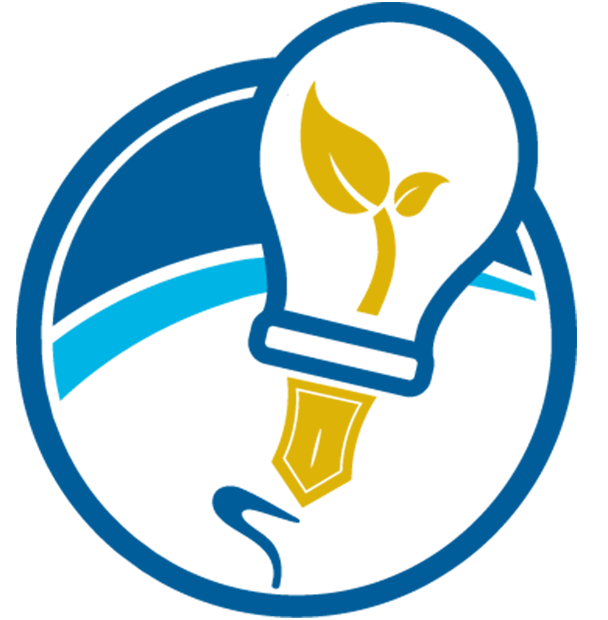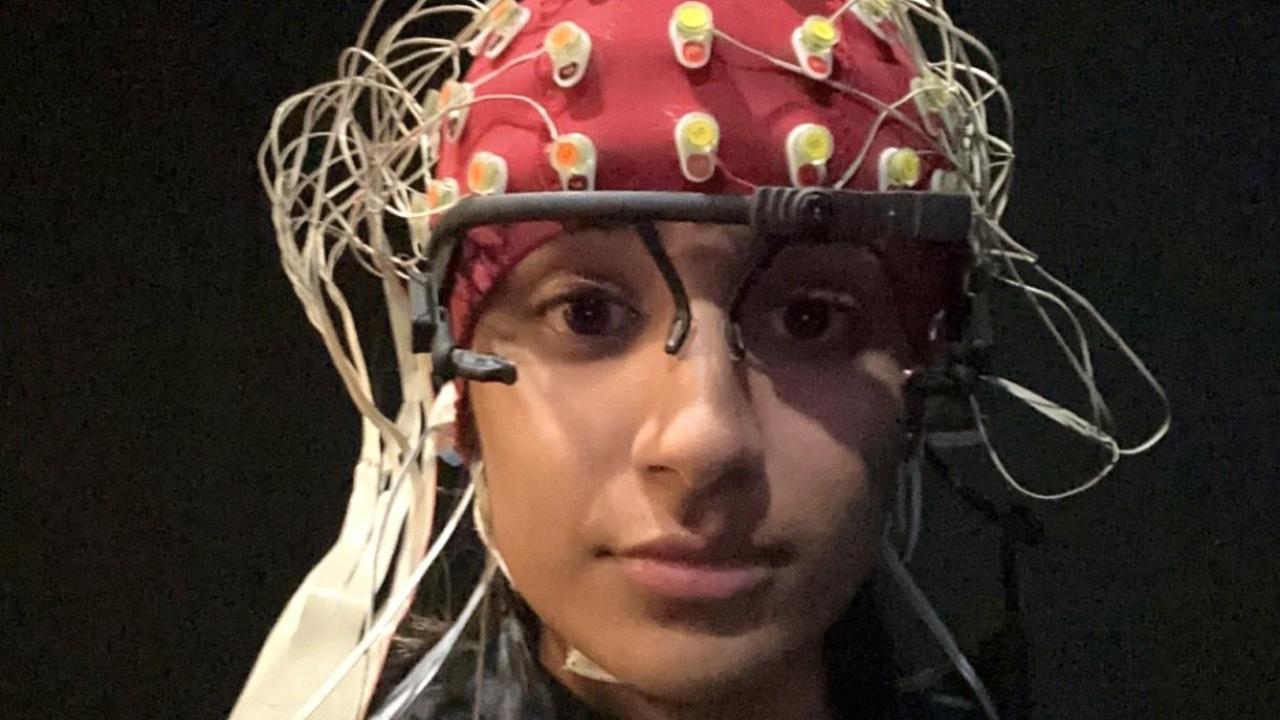
UC Davis puts student researchers in the forefront
Undergraduate students find pathways to research in traditional and avant-garde ways at the University of California, Davis. For many undergraduates, early exposure to research sculpts their career journeys in new direction. Every year, the Undergraduate Research Center introduces and connects students to hands-on research through programs, conferences, workshops, awards and mentor-mentee opportunities.
Undergraduate Research Awards
The Chancellor’s Award for Excellence in Undergraduate Research and Mentoring Undergraduate Research, the Dean Keith Simonton Prize for Creativity in Undergraduate Research and the Hanson Family Undergraduate Research Publication Award recognize deserving students, faculty, graduate students and postdoctoral scholars.
Graduate Sana Shehabi won a chancellor’s award at the annual Spring Awards Ceremony last month. She designed and led an EEG-based study exploring how the brain processes speech in noisy environments. Working in the Speech, Neuroengineering and Cybernetics Lab, she analyzed how individual cognitive differences affect auditory attention.
“I study cognitive science because I have always been fascinated by how the brain makes sense of the world, including how we pay attention, learn and make decisions,” Shehabi said. “Doing research as an undergraduate allowed me to investigate these questions, not just read about them.”
Shehabi also received the Hanson Family Publication Award. She presented at multiple conferences, including the Undergraduate Research, Scholarship and Creative Activities Conference. Additionally, the eNeuro journal recently published her research findings.
Aggie Scholars Research Initiative
The Undergraduate Research Center launched the Aggie Scholars Research Initiative this spring. The program seeks to expand research opportunities for social sciences, arts and humanities undergraduates.
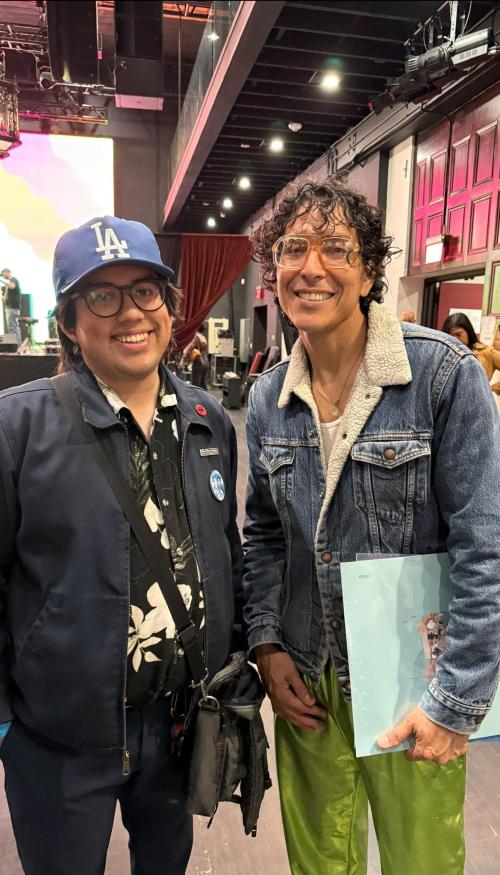
Studying cinema and digital media, sixth-year student Jacob Cotero created a documentary, East Los Burger, which explores the cultural legacy of family-run burger spots in East Los Angeles. Cotero interviewed community leaders, artists and restaurant owners across East Los Angeles. He enhanced his project’s background by reviewing archival research at the UCLA Film & Television Archive and local historical societies.
“My goal was to bring together storytelling, memory and neighborhood identity,” Cotero said. “Local family restaurants end up carrying the legacy of the communities, creating a unique type of meeting-around-the-dinner-table experience. They provide immense stability for a community that is experienced in combatting economic and social injustice for decades while remaining an unincorporated city sect of Los Angeles County.”
Mentor-Mentee program
The Mentor-Mentee Program in Humanities, Arts, Cultural Studies and Social Sciences supports undergraduate students by pairing them with graduate student mentors currently engaged in research. The program helps undergraduates build confidence and skills in academic research, critical thinking, and graduate school preparation. Further, it benefits graduate mentors by developing their mentorship, advising and professional development skills.
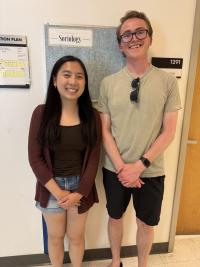
Second-year sociology student Candice Phan said she was delighted to learn mentors were available in the social sciences at UC Davis. Sociology graduate student Patrick Wade served as her mentor for the program.
“This experience reaffirmed my appreciation for mentorship, and I have encouraged other students to apply for the program next year,” Phan said. “Having engaging conversations about research pathways with Patrick on a consistent basis made me feel like I don't have to navigate academia alone and that it's possible to dream big when it comes to pursuing something I'm truly passionate about.”
Next steps for graduates
Graduate Zoa Willhoite also received a Chancellor’s Award for Excellence in Undergraduate Research. She completed a double major in sociology and statistics. Willhoite studied in both fields because she considered it necessary to develop a broad toolset to effectively tackle the issues that concerned her.
“I hope that by consciously merging statistical analysis with sociological frameworks, I can be a part of a sincere and effective effort to address inequality, foster connection, embrace the complex and ultimately do right by others,” Willhoite said. “I plan to pursue a Ph.D. in the social sciences, and a mixed-methodological skillset is intrinsic to the types of change I want to achieve in my future.”
Research skills create opportunities
Studies show that student researchers gain valuable skills that translate to job interviews and expanded career options. The Undergraduate Research Center helps all students take those steps in many ways.
“If a student learns and practices research skills as an undergraduate, the sky is the limit for where they can go,” said Raynell Hamilton-Starks, Undergraduate Research Center director.
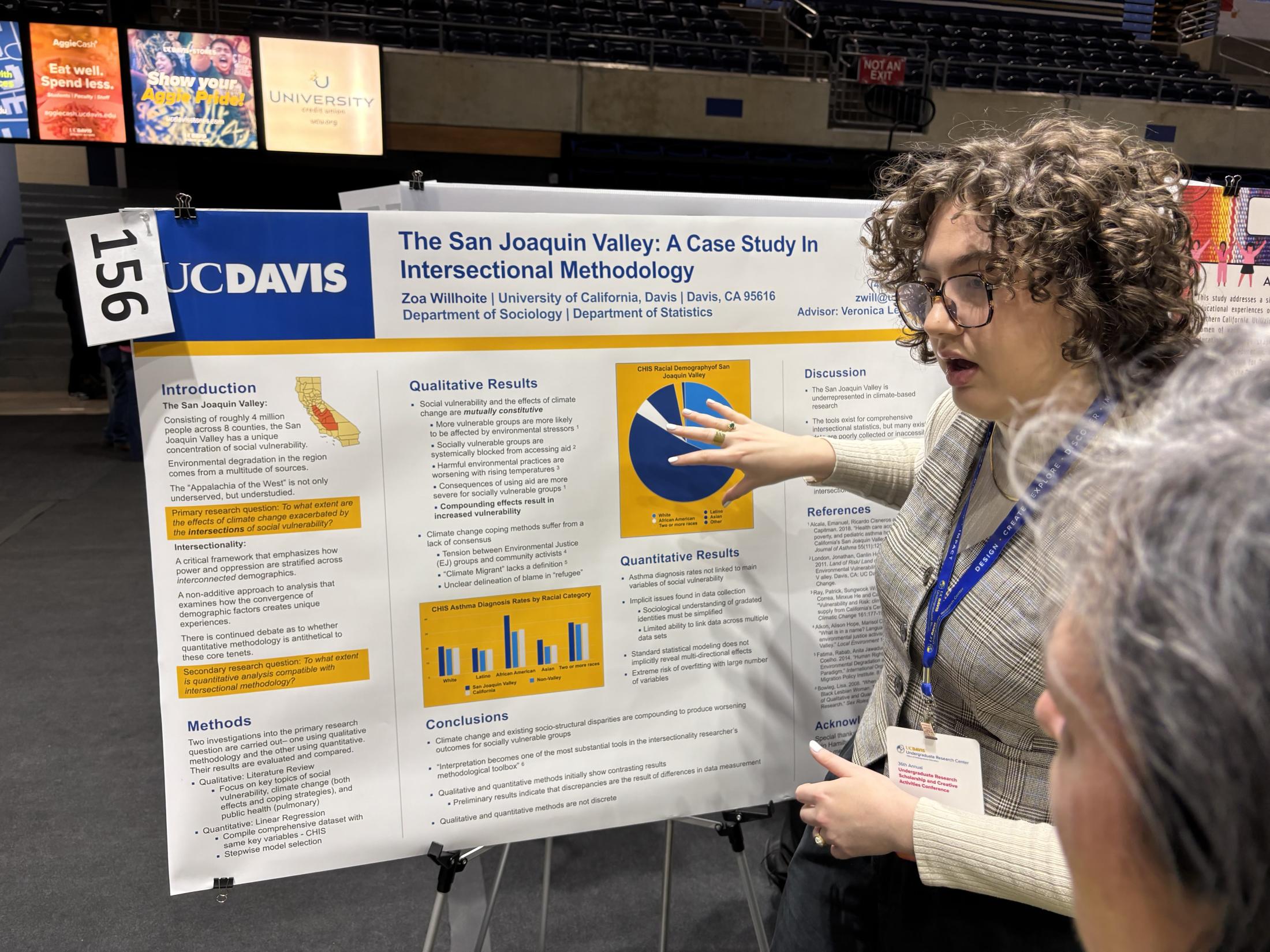
The Undergraduate Research Center, a unit within the Office of Undergraduate Education, encourages and facilitates research opportunities for UC Davis undergraduates in all majors and class levels.
